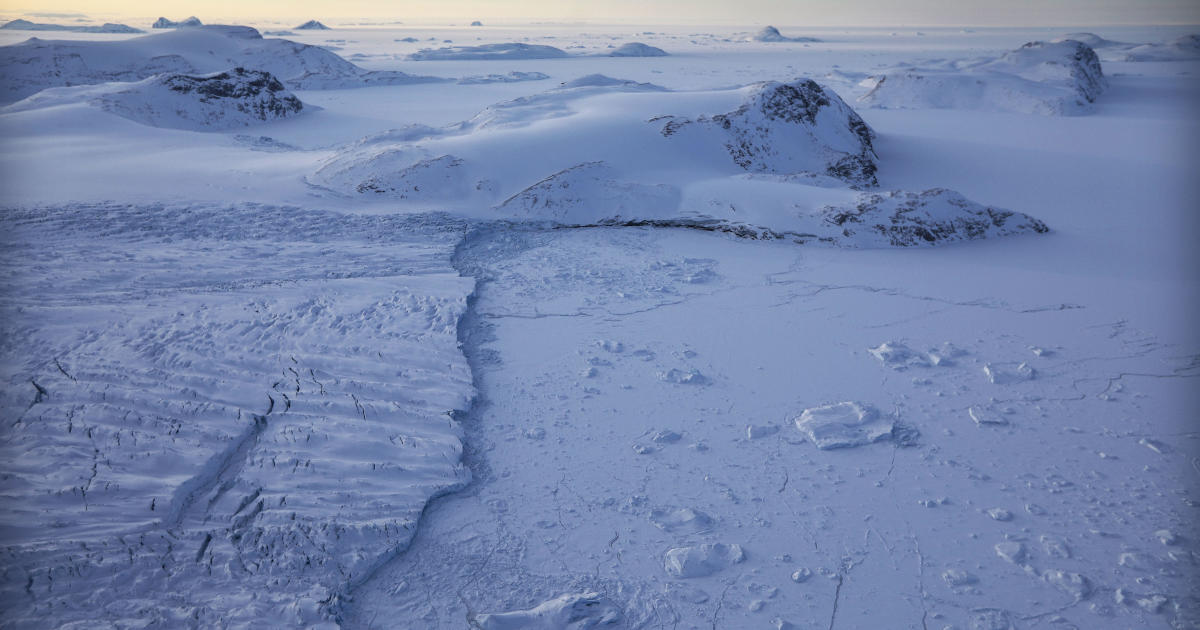
According to NOAA, the 2023 Arctic Report Card confirms that urgent action is needed to address the impacts of human-caused climate change.

Not unlike
the remaining portion of the planet
This summer, the Arctic experienced the highest temperatures ever recorded. Scientists attribute this to human-caused climate change, which is occurring at a faster rate in the Arctic than anywhere else in the world. The effects of this can already be seen and felt in communities near the polar region, and they are expected to have even more severe and widespread consequences in the future.
According to the most recent Arctic Report Card, which is released annually and evaluates the region’s environmental status, the National Oceanic and Atmospheric Administration cautioned that continued carbon emissions, both domestically and globally, will result in significant alterations in the Arctic. These changes, in turn, can lead to extreme weather occurrences in distant locations. The agency’s representatives urged individuals to take steps to address this issue.
Rick Spinrad, the administrator of NOAA, stated that the main takeaway from this year’s report card is the urgency for action. He highlighted the increased efforts and cooperation between NOAA and federal partners to assist state, tribal, and local communities in developing climate resilience. However, he also emphasized the need for significant reductions in greenhouse gas emissions at a national and global level to address the driving force behind these changes.
2023 was globally the hottest year on record, too.
The latest report observed that locations both inside and near the Arctic circle experienced extreme weather conditions throughout the year. Precipitation in these regions exceeded normal levels during all four seasons. The report also highlighted the ongoing struggles faced by local communities and Indigenous populations in the polar region due to the effects of climate change. These include more frequent and severe storms, as well as unpredictable fishing conditions that greatly impact food security and economic opportunities for Indigenous peoples in Alaska.
In 2023, the Alaska Arctic Observatory and Knowledge Hub made its debut in the Arctic Report Card by sharing its findings. This observatory collaborates with local Indigenous observers to track and record ongoing environmental shifts and their effects in northern Alaska. They reported that the region has encountered various changes, such as melting sea ice, rising temperatures in the air and ocean, shifting wind patterns, and a rise in the occurrence and strength of coastal storms, leading to flooding and erosion.
The observation center reported that extreme weather conditions have had a significant impact on cultural structures, traditional harvests and activities, and the safety of land and sea travel. The report included a message from observer Bobby Schaeffer sent to the Alaska observatory in September 2022, stating, “We experienced three severe storms. The July 18th storm had the strongest winds, with southwest winds reaching up to 50 mph and causing a record-setting storm surge. There was also heavy wind, large waves, and significant rainfall. The second storm hit on July 28th and Merbok on September 14th to 18th… I believe we lost more land to the ocean than ever before.”
The extreme weather experienced in parts of North America this summer was a direct result of changes in the Arctic, as warmer temperatures and an earlier snowmelt in northern Canada created conditions for unprecedented polar temperature increases. worst wildfire season to date.
The repercussions may have a wider impact, as indicated by the 2023 findings which revealed a continued decrease in the amount of sea ice and melting at the top of Greenland’s ice sheet. This has only occurred five times in the past 34 years.A separate study
A study released in November found that the ice shelves in Greenland have decreased by over 33% in the past 50 years due to increasing temperatures. Scientists have expressed concern over the potential “dramatic consequences” for the Earth if this trend continues, as the Greenland ice sheet is a significant contributor to the global rise in sea levels.
The 2023 report on the Arctic presented insights into various communities and groups, such as the Alaska Arctic Observatory, which are actively addressing the challenges posed by climate change and its widespread consequences.
The Snowchange Cooperative in Finland has played a vital role in improving vast damaged peatlands caused by mining and industrial forestry. With the collaboration of rural Finnish and Indigenous Sámi communities, the organization has successfully restored over 100,000 acres of previously mined and drained peatlands at the time of the report. Similarly, a rural community in the remote Svalbard, Norway – which is the fastest-warming place on Earth – is also making significant efforts towards restoration.to cut emissions
The surrounding glaciers are being melted.
More
More
Source: cbsnews.com